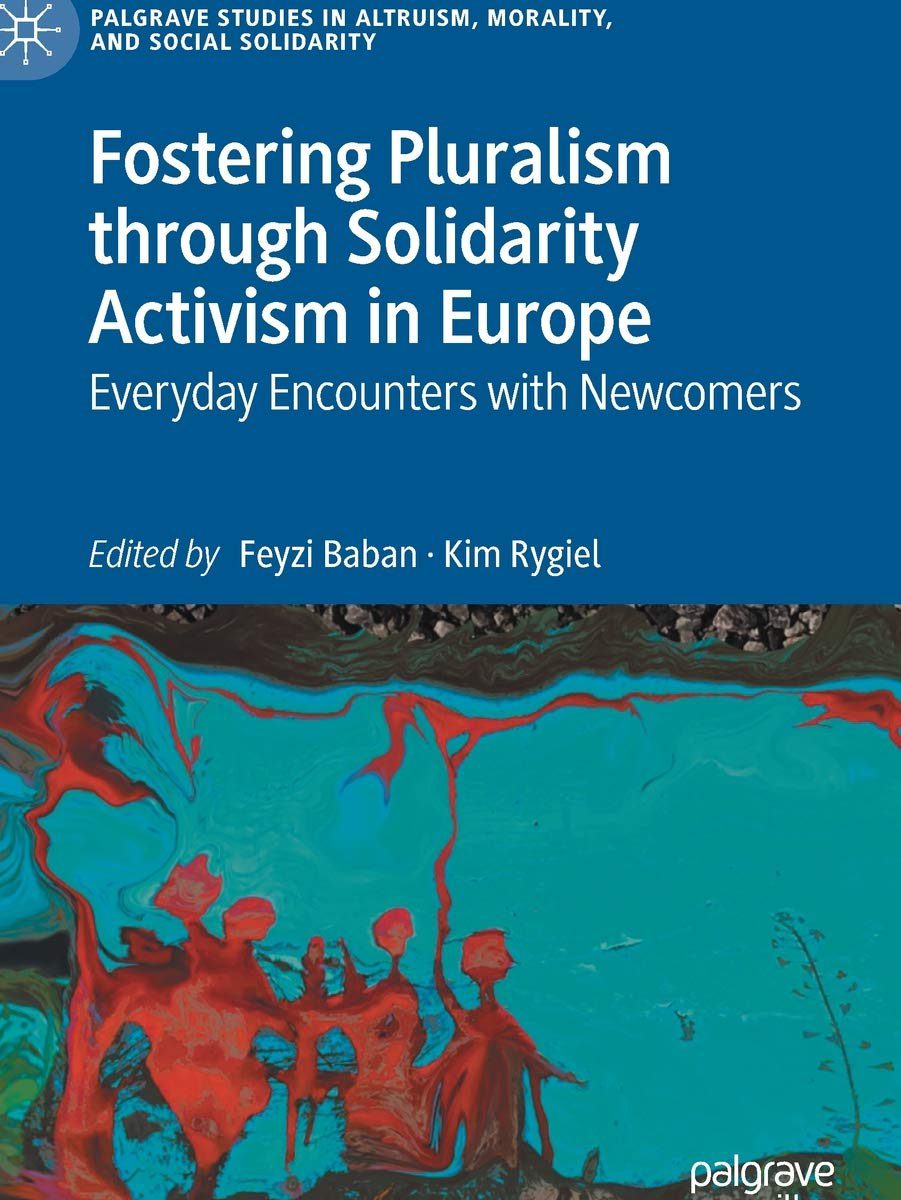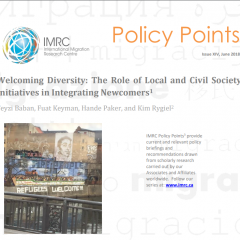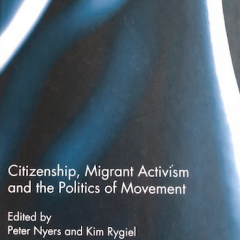Fostering Pluralism through Solidarity Activism in Europe: Everyday Encounters with Newcomers
Editors Feyzi Baban and Kim Rygiel bring together academics, artists and members of civil society organizations in a collection titled Fostering Pluralism through Solidarity Activism in Europe: Everyday Encounters with Newcomers (Palgrave Macmillan. 2020) to engage in a discussion about the ideas of living with others, through concepts such as cosmopolitanism, solidarity, and conviviality, and the practices of doing so.
In recent years, right wing and populist movements have emerged and strengthened across Europe and North America, rejecting the value of cultural, ethnic and religious plurality. Governments in Europe and North America are weakening their commitment to the international refugee regime, erecting new barriers to entry. Even as governments fail to accommodate growing pluralism, however, civil society initiatives have emerged with the aim of welcoming newcomers, such as migrants and refugees, and finding alternative ways of living together in diverse societies. Motivated by a desire to show solidarity, these initiatives demonstrate enormous creativity in fostering pluralism in an environment that has largely become hostile to the arrival of newcomers.
The contributions gathered here seek to explore such initiatives and the important work that they do in fostering ways of living together with others from diverse cultural and religious backgrounds. In focusing conceptually and empirically on discussions and examples of civil society initiatives, this book interrogates why, how and under what circumstances are some communities more welcoming than others.
Table of Contents
Introduction: Living with Others: Opening Communities to Newcomers Feyzi Baban, Kim Rygiel Pages 3-29
The Politics and Art of Solidarity: The Case of Trampoline House in Copenhagen Birte Siim, Susi Meret Pages 31-58
The Unintended Effects of Conviviality: How Welcome Initiatives in Germany Push Back Hostility Toward Refugees Ulrike Hamann Pages 59-80
Building Solidarity Cities: From Protest to Policy Stefanie Kron, Henrik Lebuhn Pages 81-105
State, Civil Society, and Syrians in Turkey Hande Paker, E. Fuat Keyman Pages 107-132
Part II
Stitching IMMART: Overcoming the Challenge of Inclusion Without Exclusion Through the Arts Nicol Savinetti, Sez Kristiansen, Sacramento Roselló Martínez Pages 135-159
‘I Have Never Met a Refugee’: KUNSTASYL—Creating Face-to-Face Encounters Using Performative Art barbara caveng, Dachil Sado Pages 161-188
Facilitating Cross-Cultural Dialogue Through Film, Art and Culture: Searching Traces and the Mahalla Festival Sabine Küper-Büsch, Thomas Büsch Pages 189-216
Connecting Through Cooking: Kitchen Hubs as Spaces for Bringing Local Community and Newcomers Together Noor Edres Pages 217-241
Kırkayak Kültür: Facilitating Living Together Kemal Vural Tarlan Pages 243-263
Conclusion Feyzi Baban, Kim Rygiel Pages 265-272


